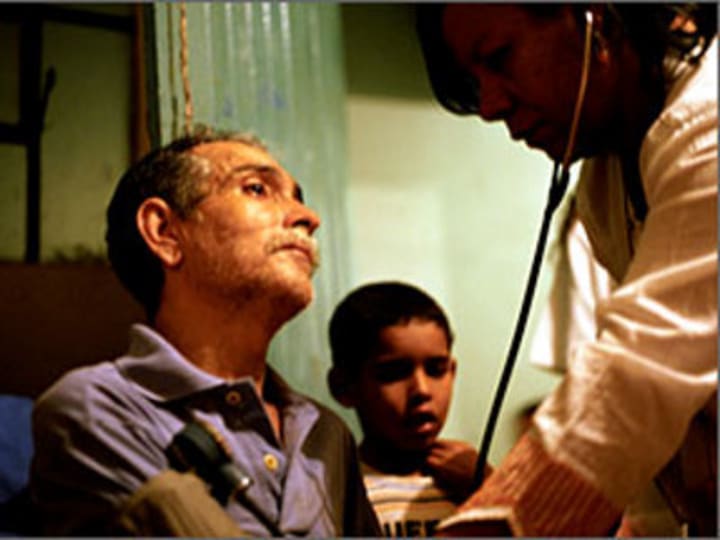
A heart attack can be a debilitating, if not a fatal, event. Diabetes can be devastating. And while we tend to think of these conditions as “diseases of affluence,” this could not be further from the truth.
Non-communicable diseases are a major challenge for governments of emerging market countries. Put plainly, it is no longer the case that infections and other communicable diseases are responsible for most deaths. If the rates of non-communicable diseases continue to rise unabated across the world, 70 percent of deaths worldwide will be caused by NCDs by 2030. Tellingly, 80 percent of these deaths will occur in low and middle-income countries – not least India, Pakistan and Brazil.
I am a UK-based cardiologist, working as part of a National Health Service Trust in the Birmingham area. I am also clinical director of the NHS Strategic Health Authority for the West Midlands. In my spare time, I chair an non-governmental organization called the South Asian Health Foundation and am also part of the international health group of the UK government’s department of health. In other words, my work and interests overlap the health challenges of affluent and poorer countries. My work asks what one can learn from the other, how governments are best placed to respond, and of course, begs the crucial question of cost.
Emerging market countries in particular are faced with utterly unprecedented challenges caused by rapid growth and equally rapid transformations to the fabric of their societies. Health trends are arguably the first thing to evolve in these contexts.
With this in mind, I recently attended the Emerging Markets Symposium, organised by Green Templeton College at Oxford University. This year’s symposium focused on the crucial link between urbanization and health. Indeed a key developmental consideration of emerging market countries is their reliance on cities as drivers of growth. And there are distinctive, shared features to the challenges faced by emerging market cities: an acceleration in the occurrence of NCDs and the accentuation of health inequalities, also known as the social determinants of health.
We see, of course, all of this happening in and around the West Midlands too, where inequalities in health and wealth can be linked with rising rates of cardiovascular disease as a major cause of morbidity and mortality. To this end, we are running a program which over the next five years, will invite each and every 40-to-74-year-old individual in the West Midlands for a health check to reduce their risks of heart disease, stroke, kidney disease and diabetes.
India, by contrast, shows a stark lack of government health outreach and limited health coverage. Sixty percent of health care costs are out-of-pocket. A heart attack could bankrupt you. And the rise in NCDs places tremendous pressure on the system as it is currently designed.
But the case of India also demonstrates that a cohesive approach needs to move beyond health care – the real challenge is to define an approach to public health that involves all areas of government. More recently, I was at a meeting on preventive cardiology in Hyderabad, India, which actually echoed many of the points made in Oxford. The key one for me was the fundamental need, at the governmental level - be it international, national, regional or at the level of individual cities - for legislative and political will to promote preventive measures. This, in turn, implies a vision of urban development that puts health at the heart of every decision made. India is making bold steps to this end by beginning to legislate on tobacco control.
The United Nations holds a summit in September 2011 to debate strategies for curbing the NCD epidemic. In anticipation of this summit, I am working with colleagues on a briefing for Commonwealth health ministers which will soon be published by the Commonwealth Fund. This itself follows a review published in The Lancet, addressing how health care systems will need to develop across low and middle-income countries, which I had the privilege to co-author with colleagues from the World Health Organisation. Our briefing will echo many of the points I have just raised.
In the final analysis, the question is the extent to which affluent countries’ health systems can teach emerging ones. That is an impossibly open question, which is why the summit will be so important. The role of both the private sector and of NGOs, for example, in the context of spectacular urban growth, will likely play a role which established health systems have never experienced. The shape of cities, and the shape of their health systems, is open to the influence of many stakeholders. My advice is to watch that space, both geographically and metaphorically.

